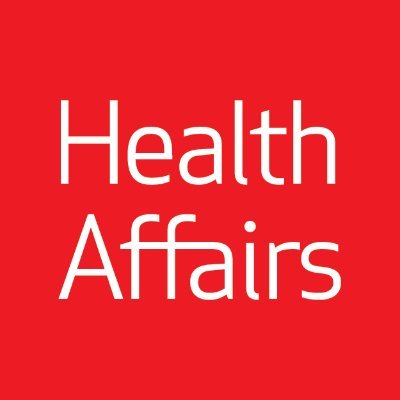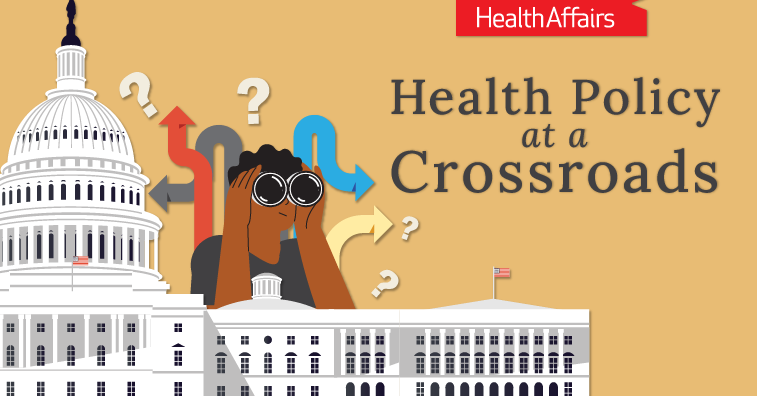
Health Affairs
@Health_Affairs
Followers
164K
Following
25K
Media
7K
Statuses
37K
At the intersection of health, health care, and policy. Follows/Tweets/RTs ≠ endorsements.
Washington, D.C.
Joined June 2008
ICYMI: Meet the new members of the Health Affairs editorial board.
healthaffairs.org
Health Affairs is deeply grateful to our ongoing board members and those retiring from service for their steadfast commitment of time, energy, and creativity.
0
0
0
After the implementation of the 21st Century Cures Act, Medicare Advantage enrollment increased among low-income and racial and ethnic minority populations with kidney failure who are treated in chain-owned dialysis treatment facilities.
healthaffairs.org
The 21st Century Cures Act, which took effect in January 2021, allowed Medicare beneficiaries with end-stage renal disease to enroll in Medicare Advantage (MA) plans. The dialysis industry is highly...
0
0
0
NEW: The public health system in the United States depends on a wide range of actors beyond the government—the health care sector, universities, community organizations, philanthropy, businesses, and the faith community, among others. | Forefront Karen Hacker, et al. |
healthaffairs.org
The public health system in the United States depends on a wide range of actors beyond the government—the health care sector, universities, community organizations, philanthropy, businesses, and the...
0
0
0
NEW: Direct-to-patient programs offer a glimpse of an alternative future in which the consumer or the employer is brought closer to the manufacturer of the medicine prescribed. | Forefront Brian Reid, @PeterNeumann11 | @TuftsCEVR
https://t.co/5TVmFGrpUr
healthaffairs.org
Direct-to-patient programs offer a glimpse of an alternative future in which the consumer or the employer is brought closer to the manufacturer of the medicine prescribed.
0
0
0
NEW: The growing presence of private equity in the pharmaceutical industry has the potential to reshape how drugs are developed, produced, regulated, and accessed. | Forefront @ysingh_phd, et al. | @BrownUniversity
https://t.co/M9528Q7qcg
healthaffairs.org
The growing presence of private equity in the pharmaceutical industry—from contract research to manufacturing—has the potential to reshape how drugs are developed, produced, regulated, and accessed.
0
0
4
In August, we raised $3m from Dragonfly and Starting Line. We spent $2.5m of it on this launch video.
92
64
672
Medicaid hearing aid coverage varies across the US. Michelle Arnold of @USouthFlorida and coauthors examined state-level Medicaid hearing aid coverage policies across the 50 states and identified disparities based on demographic characteristics. https://t.co/RJxiva5TuT
0
1
0
NEW: Examining opportunities for federal leadership to support Medicare-Medicaid integration in an evolving policy landscape. | Forefront Molly Knowles, et al. | @CHCShealth
https://t.co/PLP4wspGT5
healthaffairs.org
This Forefront article examines opportunities for federal leadership to support Medicare-Medicaid integration in an evolving policy landscape.
0
0
2
NEW: Even if GLP-1RAs are considered cost-effective, affordability may remain a major challenge for various payers due to volume effects. | Forefront @ddkim62 et al. | @UChicago @UMichLaw @UM_VBID
https://t.co/P5O1HMNmff
healthaffairs.org
Even if GLP-1RAs are considered cost-effective, affordability may remain a major challenge for various payers due to volume effects.
0
0
2
Medicaid reimburses psychological services at 74% of Medicare rates. Jane Zhu of @OHSUNews and coauthors find that between 2019–21 and 2024, most states increased Medicaid reimbursements for psychotherapy and psychological testing services. https://t.co/cW0MSQbsmt
0
0
1
To ensure that limited state resources and federal Rural Health Transformation Fund dollars are distributed to hospitals fairly and effectively, policy makers should have timely, accurate, standardized financial data and robust analyses to identify which providers are in most
healthaffairs.org
To ensure that limited state resources and federal Rural Health Transformation Fund dollars are distributed to hospitals fairly and effectively, policy makers should have timely, accurate, standard...
0
1
2
Our December 2025 issue is now available! This month’s issue features a range of topics, including cancer drugs, medical debt, cybersecurity, and more. Read the issue: https://t.co/7Q1vTdLW7b
0
2
3
Join us Dec 3 for an Insider event with our editors about this year's submissions, followed by a Q&A. Register now: https://t.co/KQ5DcBIZu3
0
0
0
The Office of Inspector General’s recent report on patient harm shone a light on a critical gap that, if left unaddressed, could be disastrous for patients, hospitals, and health systems. | Forefront Marcus Schabacker | ECRI https://t.co/8VZuZifrjk
healthaffairs.org
The Office of Inspector General’s recent report on patient harm shone a light on a critical gap that, if left unaddressed, could be disastrous for patients, hospitals, and health systems.
0
1
1
On Dec 11, explore research on private equity investment in health care, implications for clinicians and patients, & ways policy makers can respond. https://t.co/X8MYfWYm5z
0
1
1
Join our editors on Dec 3 as they reflect on 2025’s most memorable submissions & answer your questions. https://t.co/KQ5DcBIZu3
0
0
1
Health Affairs is deeply grateful to our ongoing board members and those retiring from service for their steadfast commitment of time, energy, and creativity, and is also excited to welcome 11 new members to our editorial board. https://t.co/GbtfLzGWQ1
healthaffairs.org
Health Affairs is deeply grateful to our ongoing board members and those retiring from service for their steadfast commitment of time, energy, and creativity.
0
0
2
Drummond Rennie was a nephrologist by training but perhaps his most enduring legacy is as a leading advocate for research transparency and integrity. | Forefront @bsilberg
https://t.co/y4bYacYxKx
healthaffairs.org
Rennie was a nephrologist by training but perhaps his most enduring legacy is as a leading advocate for research transparency and integrity.
0
2
2
NEW | The Supreme Court recently issued new decisions that will shape federal agencies’ regulatory power and administrative law—with significant consequences already emerging for health policy, writes Suhasini Ravi of @oneillinstitute. https://t.co/AXpAognWO1
healthaffairs.org
With the Supreme Court’s new term fully underway, we reflect on the most recent term, which concluded in June. In addition to several consequential health care rulings, the Court issued new decisions...
0
1
1
Health Affairs Scholar is a fully open access journal that publishes peer-reviewed research about emerging and global health policy. ➡️ Check out the latest issue, which covers the Medicaid prescription cap policies, health equity, and more: https://t.co/6DwUEGTtug
0
1
2
Can @CMSGov create a revision to the risk-adjustment model that requires thoughtful consideration of several methodological questions to ensure program stability for beneficiaries and promote accuracy in Medicare Advantage plan payments? | Forefront @ruthi008, et al. |
healthaffairs.org
In late 2024, the Centers for Medicare and Medicaid Services previewed a significant revision to the risk-adjustment model that has long been considered by policy makers and researchers. This...
0
0
0













